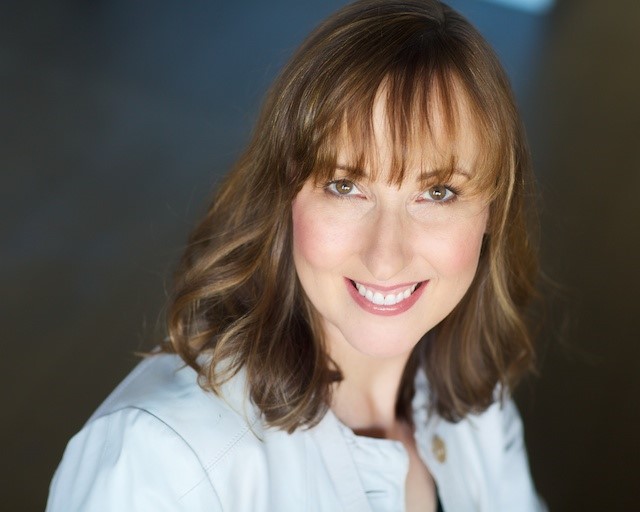Contributor: Morgan Motzel
Work and Life is a two-hour radio program hosted by Stew Friedman, director of the Wharton Work/Life Integration Project, on Sirius XM’s Channel 111, Business Radio Powered by Wharton. Every Tuesday from 7 pm to 9 pm EST, Stew speaks with everyday people and the world’s leading experts about creating harmony among work, home, community, and the private self (mind, body, and spirit).
On Work and Life, Stew Friedman spoke with Cali Yost, CEO and Founder of Flex+Strategy Group and author of Tweak It: Make What Matters to You Happen Every Day. Yost discussed the challenges today’s organizations face in creating fair workplace policies for a diverse group of employees, and how individuals can take charge and make incremental schedule changes to yield long-term gains for their work-life integration.
Following are edited excerpts of Friedman’s conversation with Yost:
Stew Friedman: What is your group doing to help people to think about the most important priorities so that they can perhaps gain more control and greater flexibility in their lives?
Cali Yost:  As you know, Stew, it really has to do with giving people a simple framework to begin to think through how their work and life fit together and helping them be as intentional as they can about that fit, both day-to-day as well as through major life transitions. It starts with understanding what flexibility is available in their lives and what makes sense for their jobs, and then within that context, thinking about what they could do to be, work, and live smarter and better. One of the most fascinating things I’ve seen in my work is an ongoing struggle to get people to understand that there’s more that they could do to live better.
As you know, Stew, it really has to do with giving people a simple framework to begin to think through how their work and life fit together and helping them be as intentional as they can about that fit, both day-to-day as well as through major life transitions. It starts with understanding what flexibility is available in their lives and what makes sense for their jobs, and then within that context, thinking about what they could do to be, work, and live smarter and better. One of the most fascinating things I’ve seen in my work is an ongoing struggle to get people to understand that there’s more that they could do to live better.
SF: Do you find, as I have, that people have more freedom than they think they have?
CY: Yes. For example, if I survey people coming in to one of my sessions, trainings, or speeches, and I ask them, do you actively and deliberately manage your work-life fit day-to-day in an intentional way? 75-80% of the people would answer that question “yes” – agree or strongly agree. Most of them already think they’re doing as much as they can.
SF: But they’re deluding themselves? Is that where you’re going?
CY: Honestly, I really don’t believe people understand what intentional management looks like until you start walking them through the steps and showing them the possible impact if they just made some minor adjustments in what they’re doing. If they did, they’d probably realize, “Oh my gosh! Wait, I’m not doing that!” They’d understand that if they just did what you call an experiment or two, they would begin to see “Wow, there is more that I can do.”
SF: So, tell us what’s the process that you take people through? What are the questions that you ask?
CY: Well, I study this group that I like to call the “work-life fit naturals.” These are the people I estimate make up about 15-20% of the population in most of the organizations that I work with. They’re the people who just seem to be able to fit it all together and not break a sweat. I’ve always been fascinated by these folks. About ten years ago, I started to study them because I wanted to understand their secrets – what do they do that’s so mystifying to the rest of us? My goal was to ultimately come up with a very simple get-started practice for people – to jumpstart this process of individuals thinking about their own work-life fit. What I found was that the secrets of the naturals are really quite simple.
I broke the findings down into their simplest components. It starts with celebrating success each week – giving yourself credit for what you do, and not focusing on what you don’t get done because it’s never perfect – and then making what I call “tweaks”: small, meaningful actions in your day-to-day work-life fit. If you’ve planned ten of those tweaks for the week, and you only get six done, then celebrate the six, and don’t worry about the four. The naturals spend a lot of time thinking about what they do get done and don’t worry so much about what doesn’t happen. They always feel like there’s next week, so they don’t beat themselves up.
It starts with celebrating success, and then sitting down and reflecting each week to figure out what you want and what you have to get done over the next seven days, both in your work and in your personal life. Then comes really planning in those habits, not only the habits or the standard tweaks that you’re going to do week after week – exercising, checking in with your family, balancing your checkbook, taking a walk at lunch – but also leaving time for those special moments – having coffee with a friend who’s in from out of town, going to your son’s science fair, researching a vacation – things that don’t happen over and over again but are still very important to schedule in periodically. Finally, you put all of them into a combined calendar and create a priority list system.
This is one of the key differences between the naturals and the rest of us: they run a combined work and personal calendar and use a priority list system. It’s all one, so they’re making decisions throughout the day based on a complete picture of their commitments. But what my research has shown is that most of us don’t do that – most people keep separate calendars and priority lists that they don’t refer to together throughout the day. Or actually they don’t even keep any kind of calendar, which is shocking to me.
SF: Because then you tend to be a lot more reactive and it’s hard to remain focused on the priorities – what really matters to you.
CY: Yes, exactly. So the tactics of work-life naturals that I just told you are not hard. And yet my research has shown that most of us don’t do any of those things.
SF: I guess that’s because the pressures from work seem much more intense, and we tend to give it priority, because the demands are greater. Why do you think that people don’t have calendars that represent all the commitments of their lives and instead tend to segment them and just have one for work?
CY: Here’s my theory: I think 20 years ago, when there were clocks and walls that separated work and life and clearly told us where work ended and other parts of life began, you could get away with thinking about the two as separate spheres. You could sort of skate by, and you’d be fine. You’d say “Okay, this is when I work, and this is when I take care of everything else.” But those clocks and walls are gone – technology and global competition have taken care of that. It’s just really hard for people to figure out where those boundaries are now. That combined calendar and priority list, though, is actually a way to begin to put some control up.
SF: Yes. Too many people are just reactive. The boundaries between work and the rest of life are created and managed now, in large measure, by ourselves, as opposed to by the clock on the wall.
CY: I think the problem of work overload is real. I think people are being asked to do a lot more. I think resources are tight, and I do not want to minimize that – however, I do think part of the challenge is that we as individuals have to start saying “yes,” intentionally, to more small things that are meaningful to us, which would help us be able to say a deliberate and thoughtful “no” where we have to.
Yost’s research illustrates that how we plan and prioritize our commitments can play a role in determining how in-control we feel over our work-life satisfaction. How do you schedule your responsibilities to your job, your family, your community, and to yourself? Are there certain segments of your life in which you feel the returns from your time input are more tangible and quantifiable, and therefore more immediately attractive? Are there any adjustments you can make in the way you plan and prioritize your commitments which might lead you to feel a greater sense of peace and accomplishment? Join us in the comments below with your thoughts and experiences.
To learn more about Yost’s work, you can check out her blog, read her book, or visit her organization’s website.
Join Work and Life next Tuesday, June 10at 7 pm on Sirius XM Channel 111 for conversations with Nancy Rothstein, The Sleep Ambassador, who’ll be talking about sleep and the lack of sleep affects work, and Sarah Sutton Fell, Founder and CEO of FlexJobs and 1 Million for Work Flexibility. Visit Work and Life for a full schedule of future guests.
About the Author
Morgan Motzel  is a rising undergraduate senior in the Huntsman Program in International Studies and Business at Penn focusing on Management and Latin America.
is a rising undergraduate senior in the Huntsman Program in International Studies and Business at Penn focusing on Management and Latin America.
Leave a Reply